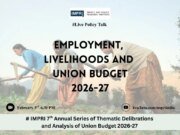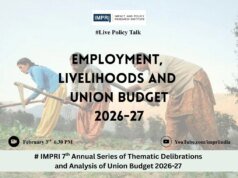Khushi Dixit
Money Laundering has its meaning in the term ‘launder’ which originates from the term ‘laundromats’—these were used as a front by crime syndicates for illegal activities. As laundromats clean our dirty clothes, money acquired through illegal activities is laundered and pushed into the economy as coming from a legitimate source.
Process of Laundering
It typically involves three stages. The first is ‘I/ferment,’wherein the launderer introduces dirty money into the legitimate financial system. This can be done in various ways, one of which is establishing shell companies, that is, inactive companies existing only on paper. The second is ‘Ordering,’wherein a series of transactions conceal the original source of the money. Finally, ’Integrating’ refers IO bringing the laundered money into the legitimate financial system.
via Shell companies-
Although not all shell companies are illegal, they are usually set up to realize tax havens abroad. Tax havens are countries where foreign entities can seek low tax advantages. The problem arises when tax havens have secrecy laws that do not divulge information about their depositors to foreign tax authorities. Some use these havens legally, while others do not declare and pay taxes required by their home country. Launderers:
- Establish a series of offshore shell companies in different tax havens. This makes it a tedious process for authorities to track money.
- Manipulate international trade invoices and enable shell companies to act a intermediaries in these fake trade deals by-
- Over- invoicing- an importer shows higher value of goods than actual value of goods purchased and moves the ‘extra money’ abroad legally or,
- Under-invoicing is when goods are exported at an undervalued rate to the shell company abroad and then sold at the market price there, enabling the ‘clean money’ to sit abroad evading tax authorities.
- Round-trip of funds- Black money, that is, money evading taxation, is sent abroad often to a tax haven via a shell company and then brought back into the home country through Foreign Direct Investments (ownership share in a foreign company made by an investor from another country).
Existing Policies – India
The Prevention ofMoney Laundering Act (PMLA) 2002 is the main law to prevent laundering, with the Enforcement Directorate as the enforcement agency in India. Apart from these, other legislations include:
The Companies Act 2013 imposes strict rules on shell companies and beneficial owner disclosure, that is, disclosure of the real person who benefits from the company. As the companies’ owners and beneficial owners are sometimes different; the Benami Transactions Act 1988 targets properties registered under fictitious names;
The Black Money and Imposition of Tax Act 2015 deals with undisclosed foreign assets.
Globally, India has signed a Double Taxation Avoidance Agreement (D TAA) with almost 85 countries. Its primary purpose is to prevent double taxation of income (residence and home countries) and facilitate trade and investments by removing trade barriers. There is also finance and tax-related information exchange between the participating countries.
It has approximately 14 Tax In%rmation Exchange Agreements (TIEAS). They provide a legal framework for tax-related information exchange on request between India and tax havens.
India is z member of the Financial Action Task force (FATF), an intergovernmental policy-making body that sets global standards for anti-money laundering and counter-financing terrorism and evaluates compliance with such standards by member countries. It has issued 40 recommendations for the same and encourages member countries to adopt beneficial ownership transparency laws. The 2024 FATF evaluation report lauded India’s efforts in the areas of financial inclusion and international cooperation.
India is also a member of the Egmont Group ofFinancial Intelligence UnitS (FIUS). The Financial Intelligence Units of various countries are responsible for collecting, analyzing, and sharing suspicious transaction reports and helping trace funds globally. The Egmont Group facilitates real-time cooperation between national FIUs.
The emergence of new technology and online payment services, peer-to-peer transfers, and online banking enables launderers to conduct real-time transfers anonymously using stolen KYC documents or fake digital IDs and have a far broader reach. Proxy servers that act as intermediaries between the user and the Internet help hide the location (IP address) of the real user and act as digital invisibility cloaks.
Money can be gambled through online sales, gaming sites, online auctions, gambling sites, etc., where laundered money is converted into gaming currency and then from there to ‘clean money.’ Laundering may involve cryptocurrencies because of their relative anonymity with flat currency. In 2022, transactions involving virtually digital assets such as cryptocurrency were brought under the ambit of the PMLA.
Some Policy Gaps and What’s Required
- Due to the existence of tax havens, laundering money becomes easier, and prevention requires global cooperation. DTAAs are in action, but loopholes such as weak information exchange, inefficient monitoring due to administrative burden, and major round-tripping of funds remain. Currently, the India-Singapore DTAA is under scrutiny for potential misuse in round-tripping, which probes the need to amend such agreements.
The shift from DTAA to Tax Information Exchange Agreements (TIEAs) seems to be in the right direction for India. TIEAs are signed specifically with tax havens, such as the Cayman Islands and the Bahamas, and are specifically designed for tax information exchange, thereby increasing transparency. Although its scope is limited to information exchange, it helps to disclose hidden assets abroad.
- Of approximately 5850 cases of money laundering cases, only 15 have been convicted under the PMLA. The Supreme Court has questioned the ED on the poor conviction rate, and influential accused persons were blamed for not allowing the trial to commence. The lack of accountability and shifting responsibility leads to ineffective tackling of the issue.
The FATF also highlighted in its 2024 report that India has a low conviction rate and needs to increase the capacity of its court system and the ED.
- The government is currently in the process of bringing online real-money gaming sites under the purview of the PMLA. This is a proactive approach to align domestic laws with FATF recommendations.
- Tightening the regulation of shell companies by banning multilayered shell structures beyond a limit, constant monitoring of suspicious companies, defining the term ‘shell company’ in the Companies Act, and maintaining a central registry of these companies.
Finally, financial illiteracy among citizens allows the system to function without accountability and opaqueness. Educating citizens and awareness campaigns would allow them to support policies that promote transparency and push for the disclosure of assets.
About the author
Khushi Dixit, a journalism graduate, is currently enrolled in IMPRI’s Public policy in Practice course. She is passionate about policy, social change, and exploring ideas that shape society.
Acknowledgment: This article was posted by Aashvee Prisha, a Visiting Researcher at IMPRI.
Disclaimer: All views expressed in the article belong to the author and not necessarily to the organisation.
Read more at IMPRI:
Pan-India Incredible India Tourist Facilitator (IITF) certification Programme (2019)



















